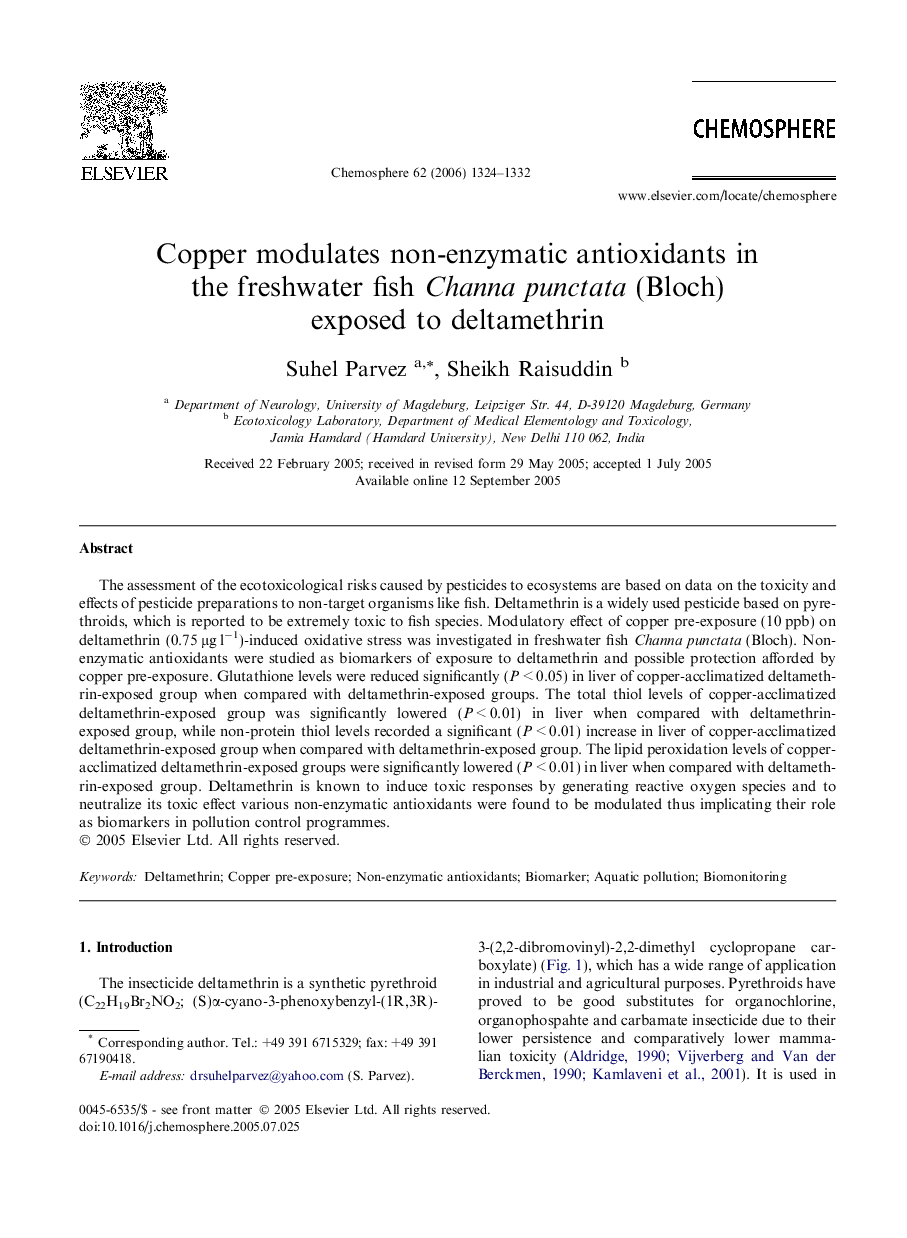| Article ID | Journal | Published Year | Pages | File Type |
|---|---|---|---|---|
| 4416119 | Chemosphere | 2006 | 9 Pages |
The assessment of the ecotoxicological risks caused by pesticides to ecosystems are based on data on the toxicity and effects of pesticide preparations to non-target organisms like fish. Deltamethrin is a widely used pesticide based on pyrethroids, which is reported to be extremely toxic to fish species. Modulatory effect of copper pre-exposure (10 ppb) on deltamethrin (0.75 μg l−1)-induced oxidative stress was investigated in freshwater fish Channa punctata (Bloch). Non-enzymatic antioxidants were studied as biomarkers of exposure to deltamethrin and possible protection afforded by copper pre-exposure. Glutathione levels were reduced significantly (P < 0.05) in liver of copper-acclimatized deltamethrin-exposed group when compared with deltamethrin-exposed groups. The total thiol levels of copper-acclimatized deltamethrin-exposed group was significantly lowered (P < 0.01) in liver when compared with deltamethrin-exposed group, while non-protein thiol levels recorded a significant (P < 0.01) increase in liver of copper-acclimatized deltamethrin-exposed group when compared with deltamethrin-exposed group. The lipid peroxidation levels of copper-acclimatized deltamethrin-exposed groups were significantly lowered (P < 0.01) in liver when compared with deltamethrin-exposed group. Deltamethrin is known to induce toxic responses by generating reactive oxygen species and to neutralize its toxic effect various non-enzymatic antioxidants were found to be modulated thus implicating their role as biomarkers in pollution control programmes.
